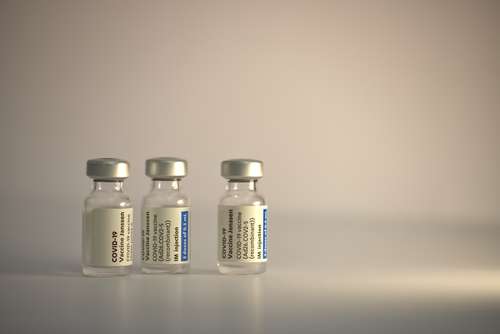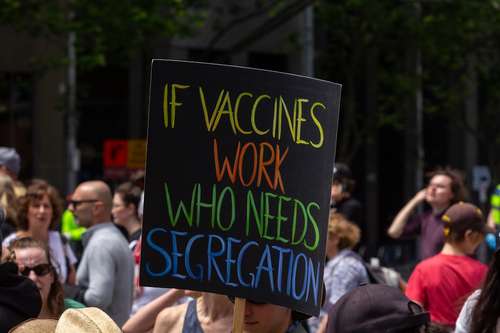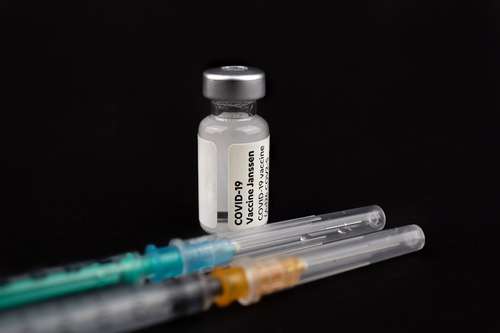Recent discussions in the vaccine debate have stirred up strong opinions, particularly following RFK Jr.'s recent claims linking aluminum in vaccines to peanut allergies. In a conversation that sounds like it came straight from a lively town hall meeting, these assertions have raised eyebrows among many parents and caregivers. However, amid the growing concerns, trusted voices in immunology and public health are urging a measured understanding backed by credible medical research.
This article takes a closer look at RFK Jr.'s statements, the role of aluminum in vaccines, and what allergy research reveals about peanut allergies. Let’s dive into the facts to unravel the controversy over vaccine ingredients, aluminum exposure, and their alleged connection to allergic reactions.
RFK Jr.'s Claims and the Vaccine Controversy
RFK Jr., a vocal member of the Kennedy family, has been a prominent figure in the vaccine debate. His claims suggest that aluminum in vaccines might be linked to peanut allergies in children. This assertion has quickly become a talking point in discussions about vaccine safety. Many are left wondering, is there any truth to these concerns?
The Kennedy family has long been in the public eye, and RFK Jr.'s foray into vaccine controversy has only amplified scrutiny. He asserts that aluminum exposure from vaccine ingredients could be responsible for provoking allergic reactions, including peanut allergies. However, when we take a closer look at the science of immunology, this line of thought lacks credible evidence. Numerous studies have repeatedly demonstrated that the aluminum used in vaccines is safe, serving as an adjuvant to enhance the immune response.
Critics of RFK Jr.'s claims maintain that his perspective is not supported by robust medical research. Experts in allergy research and public health emphasize that allegations linking aluminum in vaccines to peanut allergies are speculative and lack a consistent scientific basis. The debate is fueled by anecdotal accounts and selective interpretations, rather than by comprehensive data.
Understanding Aluminum in Vaccines
Let's break down what aluminum in vaccines actually means. For decades, aluminum salts have been an integral component of many vaccines. They act as adjuvants, substances that help the body’s immune system mount a stronger and longer-lasting response against the pathogen. This is crucial for effective immunization, especially in young children whose immune systems are still developing.
When you consider the amount of aluminum used in a typical vaccine dose, it's important to note that it is minuscule when compared to everyday aluminum exposure. That’s right—aluminum is present in many aspects of our lives, from food packaging to cookware. Even environmental exposure through drinking water is often significantly higher. Clearly, the doses in vaccines are regulated and extensively studied.
Many public health officials and vaccine safety experts agree that the benefits of using aluminum adjuvants far outweigh any theoretical risks. The concentration used in vaccines has been optimized over years of research, ensuring safety while effectively boosting the body’s defense mechanisms.
Peanut Allergies and Allergy Research
Peanut allergies have become more common, prompting significant research into their origins and triggers. The surge in peanut allergies has many questioning whether vaccine ingredients could play any role. However, experts in immunology and allergy research have found that peanut allergies are influenced by a complex interplay of genetic and environmental factors, not by exposure to aluminum.
Several large-scale, peer-reviewed studies have investigated the causes of peanut allergies and consistently show that there is no causal link between aluminum in vaccines and the development of these allergies. Researchers emphasize that while aluminum exposure is a hot topic in vaccine discussions, it does not alter the fundamental components of peanut allergy mechanisms.
In many ways, the correlation made by RFK Jr. feels like jumping to conclusions without sufficient scientific grounding. While the notion might resonate with parents who are already concerned about vaccine ingredients, it is crucial to base our understanding on accurate health facts derived from rigorous medical research.
What Health Experts Say on Vaccine Safety
Health professionals and immunologists have long been advocates for vaccine safety, often citing decades of research and continuous monitoring systems. Many leading scientists argue that the aluminum used in vaccines is safe and does not contribute to allergic reactions such as peanut allergies. They stress that the ingredients in vaccines are selected with utmost care, following strict guidelines and thorough testing.
For instance, vaccine safety reviews conducted by institutions like the Centers for Disease Control and Prevention (CDC) consistently confirm that the vaccine ingredients, including aluminum, remain within safe levels. In the words of many experts, the safety record of vaccines speaks for itself, and the minor trace amounts of aluminum are not sufficient to trigger immunological anomalies like peanut allergies.
We can consider this a classic case of mixing up correlation with causation. While the current environment of social media and public debate can spark uncertainty, the clear message from the scientific community is that vaccine ingredients are safe. Their work reinforces that the risk of severe allergic reactions due to aluminum exposure in vaccines is extremely low, especially when weighed against the critical protection vaccines offer against diseases.
This type of scientific scrutiny is essential, especially when public health hangs in the balance. Every new claim should be examined carefully to ensure that parents and caregivers receive accurate, evidence-based information.
The Bigger Picture: Public Health and Medical Research
The current dialogue around RFK Jr.'s claims is a reminder of how complex vaccine safety and public health issues can be. It's important to understand that debates like these are often fueled by a mix of anecdotal evidence and misinterpretation of scientific data. That’s why it’s crucial to rely on extensive medical research and thorough reviews by experts to guide our conclusions.
While it's entirely natural to worry when hearing claims about dangerous additives in vaccines, knowledge is our best tool. In this case, understanding the historical context and the safety protocols that underpin vaccine formulations can help dispel unfounded fears. As one reviewer of vaccine research explained, evaluating each claim critically ensures that we continue to make informed choices for our families.
Whenever new claims emerge, it’s a good idea to sift through the available health facts with a discerning eye. The world of vaccine safety and allergy research is well-monitored, and we must trust the collective expertise of health professionals who have dedicated their careers to protecting public health. It’s a bit like trusting the road signs when driving: even if you encounter a detour, the guidance is based on years of careful planning and research.
As we weigh RFK Jr.'s statements against the larger body of evidence, the overarching message is clear: the claims linking aluminum in vaccines to peanut allergies simply do not hold up under scientific scrutiny. The rigorous studies conducted over decades favor the continued safety and efficacy of vaccines, emphasizing that aluminum exposure through vaccines is not a cause for alarm regarding allergic reactions.
Taking a balanced perspective, it’s evident that while vaccine controversy can spark lively debate, the key is to ground our discussions in robust science and medical research. As always, maintaining an informed conversation can lead to better public health choices and strong community trust in the safety of vaccines.
In conclusion, the debate over whether aluminum in vaccines is linked to peanut allergies continues to be an area of concern among some, but the overwhelming majority of expert research points to its safety. We hope that this exploration helps clarify the facts and encourages further discussion based on verified health information. Let’s keep the conversation evidence-based and prioritize the well-being of our community.




